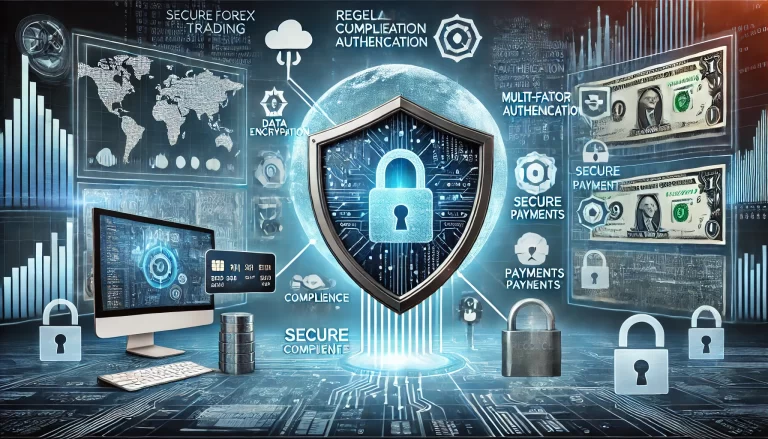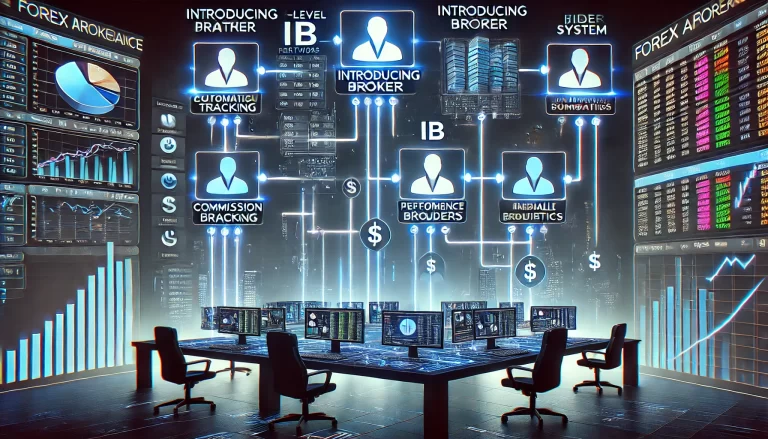Introduction
The online trading industry is booming, with millions of traders executing transactions daily. However, as the market grows, so do the risks associated with fraud, cyber threats, and regulatory violations. Compliance and security are no longer just optional safeguards; they are essential components of a legally sound and trusted brokerage. In this article, we explore why compliance and security are critical in online trading and how brokers can protect their business and clients.
Understanding Compliance in Online Trading
Financial regulatory bodies such as SEC, FCA, CySEC, and ASIC impose strict compliance requirements to ensure transparency, prevent fraud, and protect traders.
✅ Know Your Customer (KYC) & Anti-Money Laundering (AML) – Verifying trader identities to prevent illegal financial activities.
✅ Data Protection Laws (GDPR, CCPA) – Safeguarding client information from misuse or breaches.
✅ Trade Transparency – Ensuring brokers provide clear pricing, order execution policies, and avoid market manipulation.
✅ Financial Reporting & Audits – Keeping accurate financial records for regulators and stakeholders.
Failing to comply with these regulations can result in heavy fines, license revocation, and reputational damage.
Why Security is a Top Priority for Brokers
With increasing cyber threats targeting financial institutions, security has become non-negotiable. Key security measures include:
1. Advanced Data Encryption
Brokers must use SSL certificates, AES-256 encryption, and secure socket layers to protect client transactions and personal data.
2. Multi-Factor Authentication (MFA)
Adding an extra layer of protection with MFA ensures only authorized users access trading accounts.
3. Secure Payment Processing
Payment gateways should be PCI DSS-compliant, reducing the risk of fraud and chargeback scams.
4. Regular Security Audits & Penetration Testing
Routine penetration testing and cybersecurity audits help identify vulnerabilities before hackers do.
5. Automated Risk Monitoring
AI-driven tools analyze trading behaviors to detect suspicious activities like wash trading or insider trading.
How Compliance & Security Build Trader Trust
1. Preventing Fraud & Money Laundering
AML and fraud detection systems flag suspicious transactions in real-time, reducing the risk of illicit financial activities.
2. Enhancing Market Credibility
Brokers with strong compliance policies attract traders who value security, boosting credibility in the industry.
3. Ensuring a Safe Trading Environment
Traders feel more confident when platforms implement secure logins, encrypted transactions, and transparent reporting.
4. Avoiding Legal & Financial Penalties
Non-compliance can result in multi-million-dollar fines and revoked trading licenses, putting brokerage operations at risk.
How Brokers Can Stay Compliant & Secure
1. Implement a Robust Trading CRM with Compliance Tools
A modern Forex CRM like Flow360 CRM automates KYC, AML verification, and risk assessment, helping brokers stay compliant.
2. Partner with Regulated Payment Providers
Using regulated PSPs ensures secure and fraud-proof transactions.
3. Regular Compliance Training for Employees
Keeping the team updated on regulatory changes prevents compliance lapses and improves risk management.
4. Invest in Cybersecurity Infrastructure
Adopting firewall protection, fraud detection AI, and penetration testing strengthens security.
Conclusion
Security and compliance are the foundation of a successful and sustainable brokerage. A firm that prioritizes trader protection, regulatory adherence, and cyber defense not only prevents financial risks but also builds long-term trust with clients.
Is your brokerage compliant and secure? Learn how Flow360 CRM can help your firm meet compliance regulations and cybersecurity standards today!




